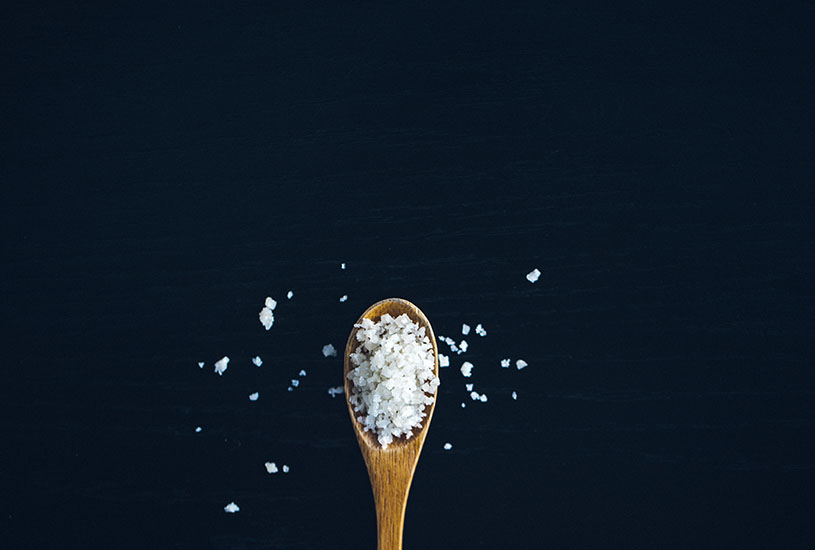Scientists have uncovered the exact reasons behind salt’s addictive nature.
Australians eat too much salt, putting us at risk of high blood pressure, which accounts for about half of all strokes, heart disease and chronic kidney disease deaths. Almost one in 20 deaths in Victoria is attributable to high salt intake – six times the annual road toll.
However, a new discovery points the way toward drug treatments that could reduce our intake of high salt foods and help combat other addictions.
Dr Craig Smith, from Deakin University’s School of Medicine and the Florey Institute of Neuroscience and Mental Health, has shown how a specific circuit in the brain’s opioid system is responsible for making us seek out salt.
[testimonial_text]Modern western diets high in salt also tend to be high in things like fat and sugar – which have also been shown to possess addictive properties. Put these three ingredients together and you have an almost irresistible recipe for obesity.[/testimonial_text]
[testimonial_picture name=”Dr Craig Smith” details=”Deakin University’s School of Medicine”]
 [/testimonial_picture]
[/testimonial_picture]“Our bodies have multiple forms of ‘natural opioids’ – those molecules released after you enjoy a particularly energetic session of exercise (or love-making), drinking water when thirsty or eating salt after sweating.
“Interestingly, these same molecules also control our craving of these rewards.”
Although scientists know that the opioid system regulates salt seeking, the exact circuit has, until now, remained a mystery.
Using mice that had salt removed from their diet, Dr Smith and his team used three separate opioid blockers to work out which specific circuit was activated when the mice drank salty water.
“Two blockers did nothing. But a third, naloxonazine, drastically reduced the amount of salt consumed by the animals,” explained Dr Smith.
As well as discovering the exact opioid receptor system involved in “salt reward,” the team has built upon four years of work to identify the part of the brain where it happens.
Although opioid receptors are found throughout the brain, giving salt-depleted mice access to salty water activated receptors in a specific brain area called the central amygdala – where emotions are processed.
This allowed the researchers to block opioids in that particular brain region, and the salt-depleted mice were no longer interested in drinking salty water.
“Natural opioids, like endorphins, bind to receptors in the brain. These findings open the way for us to study this salt seeking circuit in humans using magnetic resonance imaging and other techniques, to then develop targeted drugs to inhibit salt craving and promote more healthy dietary choices,” Dr Smith said.
“If processed food producers are slow to respond to the need to reduce salt in their products, this could be another way to lower deaths associated with high salt intake.”
Dr Smith explained that the findings could also lead to improved treatments for other forms of addiction.
“Addiction to opiates like heroin is a phenomenon of the last 5000 years. This research suggests opiates have ‘high jacked’ the ancient genetic organisation of salt appetite, which evolved over 300 million years.
“Opiates activate the same receptors in our brain that are stimulated by salt – except much more strongly. Just as future drug treatments might reduce salt craving, they might also reduce an addict’s craving for heroin.”
Dr Smith’s research was funded with a National Health and Medical Research Council Project Grant, and published in the Early Edition of the current issue of “Proceedings of the National Academy of Science”.



